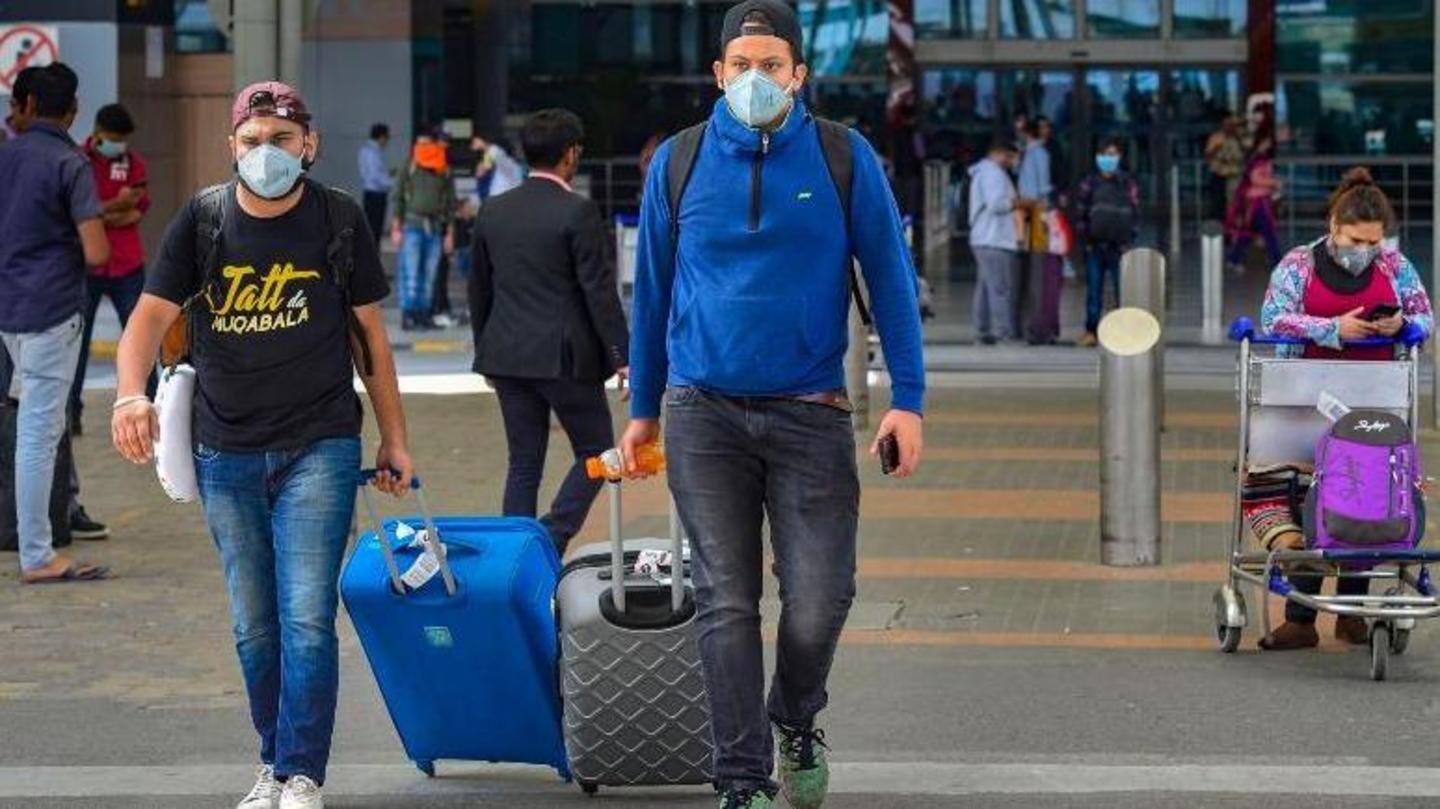
Delhi HC slams flight passengers for not wearing masks properly
What's the story
The Delhi High Court has taken strong note of an alarming situation of passengers not properly wearing masks in flights and issued guidelines to all domestic airlines and DGCA for strict compliance, including penal action for offenders and periodical checks of the aircraft on Monday. Justice C Hari Shankar took suo motu cognizance of the situation and issued guidelines for immediate compliance.
Details
Judge witnessed the alarming situation on his Air India flight
The HC said it was constrained to pass the order because of an alarming situation that was witnessed by the judge himself during the Air India flight from Kolkata to New Delhi on March 5. It was noticed that, though all the passengers had worn masks, many had worn it below their chin and were exhibiting a stubborn reluctance to wear their masks properly.
Quote
The judge's observation on the situation
"This behavior was seen not only in the bus transporting the passengers from the airport to the flight but also within the flight. It was only on repeated entreaties made to the offending passengers that they condescended to wear their masks properly," the judge said.
Reaction
Cabin crew says they are helpless if people don't comply
On being questioned in this regard, the cabin crew stated that they had directed all the passengers to wear masks, but were helpless in case they did not comply, he added. The court said a situation when the country is seeing a resurgence of COVID-19 cases after they had shown signs of ebbing, is completely unconscionable.
The guidelines
In-flight crew to ensure passengers follow protocol
The guidelines framed for immediate and strict compliance include that the in-flight crew shall carry out periodical checks of the aircraft to ensure that passengers are complying with the protocol, especially regarding wearing masks. It has been made clear that masks should be worn as per governmental instructions, covering the nose and mouth, and not worn merely covering the mouth or below the chin.
Information
Those refusing to comply can be placed on 'no-fly' regimen
If any passenger denies following the protocol, action should be taken against them in accordance with the DGCA or Ministry of Health and Family Welfare's guidelines, including placing them on a "no-fly" regimen, either permanently or for a stipulated, sufficiently long, period, it said.
Order
Provide written instructions along with boarding pass
The HC also asked DGCA to forthwith and prominently reflect on its website the instructions containing the guidelines and protocols. It also directed the airlines to ensure that written instructions regarding the protocol to be followed by passengers in flight, including the measures that could be taken against them, are provided to the passengers along with the boarding pass.
Measures
DGCA may consider sending random observers on flights
The in-flight announcements which require the passengers to wear masks should be modified to include a cautionary word regarding the penal action that could be taken against them in the event of default, it said. In order to ensure compliance, DGCA may consider sending random observers on flights, without prior information, who would check to ensure that the COVID-19 protocols are followed in flight.
Details
Strict enforcement of all penal provisions to be ensured
Strict enforcement of all penal provisions, which could visit delinquent passengers who refuse to abide by the COVID-19 protocols to be maintained in flight, should be ensured. There should be no relaxation whatsoever in that regard. The court noted that DGCA guidelines permit relaxation from wearing masks in exceptional cases and said it should be allowed only after evaluating the necessity of traveling.
Details
The matter will be registered as a suo motu PIL
Authorities are to give adequate publicity to these guidelines and penal action will be initiated against the airlines repeatedly failing to ensure compliance. The matter will be registered as a suo motu PIL and listed before an appropriate bench dealing with PILs on March 17. It asked the DGCA and Air India to file their reports before the bench regarding compliance with the guidelines.